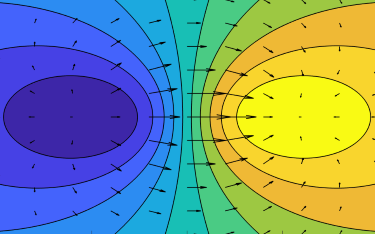Multivariable Calculus 1: Vectors and Derivatives
We live in a multivariable world. Explore the derivative in higher dimensions and learn how to apply it to solve real world problems. Part 1 of 3.
We live in a multivariable world. Explore the derivative in higher dimensions and learn how to apply it to solve real world problems. Part 1 of 3.
We live in a multivariable world. Explore the derivative in higher dimensions and learn how to apply it to solve real world problems. Part 1 of 3.
Variables are all around us: temperature, altitude, location, profit, color, and countless others. Multivariable Calculus is the tool of choice to shed light on complex relationships between 2, 3, or hundreds of variables simultaneously.



